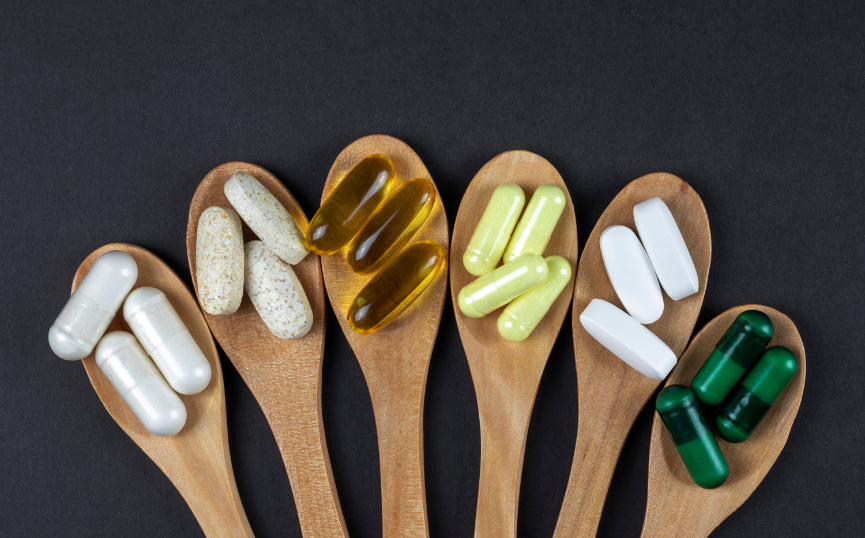Prostatitis – Symptoms, treatment, consequences, prevention
Man, I know you may think that prostate problems are a sign that time has passed. Most of us might think that prostate problems in men are like menopause in women, at least in the sense that they come with age. Unfortunately for my younger male fellows, I am going to give you some bad news. Although most prostate problems affect the very old, there is one particular problem that can catch up with the fast-moving young – and that is prostatitis.

But there is no reason to panic! In today’s article, we’ll go through the symptoms of prostatitis and don’t worry, we’ll also cover how you can treat the problem with natural remedies. You know the reasoning behind proper therapy is essential, so Vitamin360 has travelled deap into the male body to uncover the underlying cause of the problem. It’s important to note that Vitamin360’s suggestions are not a substitute for medical treatment, but a complement to it.
Prostatitis – clinical picture, statistics
To summerise its symptoms: pain, sexual dysfunction and urinary problems (prostatitis) can affect people as young as 20. Prostatitis affects nearly 10% of men.1 The acute form (most commonly caused by a bacterial infection) develops between the ages of 20 and 40. The chronic form (which also be caused by infection) is more prevalent towards the forties. Also, after the age of 50, the symptoms of prostatitis may overlap with other prostate problems (such as prostate enlargement or cancer).
The treatment of prostatitis is complicated by the fact it is not always caused by an infection. Let’s clear the air! Let’s start with what the prostate is!
What exactly is the prostate?
The prostate is also known as the prostate gland. It is a tiny, chestnut-shaped organ whose function lies in the substance it secretes. The semen is made up of three main parts: the sperm cells produced by the testes, the seminal vesicle and the secretions of the prostate – all three components are essential for fertility.3 Furthermore, the function of the muscles of the prostate is to push the semen further up the urethra so that it is eventually released into to outside world.
The urethra passes through the prostate, so during prostate enlargement (and possibly inflammation) this section can become compressed, which can cause urinary difficulties. The resulting stasis drastically increases the risk of infection and puts a strain on the kidneys. So prostate and kidney problems can go hand in hand – they can even be a consequence of each other..
Symptoms of prostatitis1,2
Pain: One of the leading symptoms of prostatitis is pain in the groin, pelvis and waist. This pain can be confused with musculoskeletal problems (most commonly herniated discs). A red flag is when the pain is most severe in the pelvic and groin area, or radiates down to the testicles and the area between the scrotum and the anus (perineum), or even into the penis.
Urination problems: in addition to pain, there may also be urination problems; frequent urination may be accompanied by burning pain.
Sexual dysfunction: Many people report erectile problems and/or reduced sexual desire.
General symptoms: in addition, general symptoms such as fatigue, fever and chills may also accompany the symptoms.
The difference between acute and chronic prostatitis is that while the former develops quickly and resolves quickly, the latter gets worse slowly and is therefore persistent.

Causes of prostatitis and pelvic pain syndrome:
If acute bacterial prostatitis is not fully treated, the infection may become chronic as a consequence. This means that the bacteria remain hidden in the prostate and can occasionally cause flare-ups.
- Bacteria can form a biofilm inside the prostate, making it difficult for antibiotics to completely eradicate the infection. The bacteria in the biofilm are protected and can persist in the prostate for longer periods.
- Chronic bacterial prostatitis is often associated with recurrent urinary tract infections that can trigger symptoms again and again.
Not so much is known about non-bacterial prostatitis or pelvic pain syndrome. Their causes may include:
- Muscle strain: excessive tension in the pelvic muscles puts extra strain on the prostate and can predispose it to inflammation and/or cause pain.
- Autoimmune response: the body’s immune system may mistakenly attack the prostate, causing inflammation. This immune response can be triggered by various factors, such as infections or genetic predisposition, even in the absence of bacteria.
- Intraprostatic urinary reflux: this can occur when urine leaks back into the prostate. The material in the urine that returns can irritate the prostate and cause it to become blocked.
- Nerve problems: nerves around the pelvis and prostate can also become inflamed or damaged (by autoimmune processes, surgery or previous trauma) – this can lead to hypersensitivity of the nerve fibre, which can cause pain and discomfort.
- Lifestyle factors: stress, anxiety, an overly sedentary lifestyle or tight pelvic muscles can also play a role in the development of non-bacterial prostatitis. The lifestyle factors listed above interact and may even reinforce each other.
- Physical trauma: accidents or injuries, especially around the pelvic area, can also cause inflammation or pain in the prostate area.
- Factors related to sexual activity: overdoing things is not healthy. Very frequent ejaculation, but excessive abstinence is not healthy either.
Medical therapies for prostatitis and pelvic pain syndrome
As we have seen, prostatitis can sometimes be caused by infections. When an infection can be confirmed, the doctor will start antibiotic treatment and in many cases may prescribe muscle relaxants (to relieve the urethra).8 If there is no infection, muscle relaxants are the first line of therapy.
In both cases (infection or not), medical treatment may well be complemented by a flavonoid (plant active ingredient) called quercetin. The relevance of this is increasingly supported by a growing number of sources.8,9
Furthermore, lifestyle changes can further stimulate the healing of acute prostatitis. If the problem is caused by a bacterial infection. Then the problem needs to be approached in several ways.
- Proper medical treatment, i.e. taking antibiotics and muscle relaxants.
- Complementary therapies to reduce the chances of the acute infection becoming chronic. This would mean supplementation itself.
Recommended dietary supplements against bacterial prostatitis
- MULTIVITAMIN AND MINERAL COMPLEX: first and foremost, to keep your immune system fit and healthy. Most of the vitamins and minerals act as antioxidants to reduce the effects of harmful substances (free radicals) in our bodies – in other words, they detoxify the immune system (because if there is no major damage, the immune system doesn’t have to work as hard).12 In addition these vitamins and minerals play a role in a number of biochemical processes that are essential for fighting infections. For example, they stimulate the function of proteins, affect cell-to-cell communication, affect genes and so on.13-14 The point is that each vitamin and each mineral works slightly differently, so you need them all. And to get the right effect, it is important that they are also biologically active.15 Multivitamin formulations are also very important in terms of prevention. The Life Extension Two-Per-Day Multivitamin and Mineral (120 Capsules) is super-utilising and even contains a little extra quercetin. As a supplement, it is worth taking additional quercetin. Here’s why!
- QUERCETIN: a natural flavonoid that acts as an antioxidnat and also has anti-allergic effects.29,30 Quercetin is the most scientifically supported plant active ingredient against prostatitis.8-10 Some of its effects are as a detoxifying antioxidant, but it has also now been shown to enhance the effects of muscle relaxant therapies. Life Extension Optimized Quercetin 250 mg – quercetin capsules are a perfect complement to the Two-Per-Day Multivitamin.
- D-MANNOSE: a healthy sugar! Yes, yes, it is, and there’s a plethora of studies confirming its significant role in fighting urinary tract infections. Some sources claim it rivals the effectiveness of antibiotics. D-mannose keeps bacteria from sticking around and forming a biofilm. The latter effect is explained by the fact that proteins expressed on the surface of many bacteria bind to mannose receptors on our body cells. And if there is enough D-mannose, it will occupy this space in the receptors. Thus, D-mannose can only have the greatest effect on bacterial strains that use mannose to damage host cells. However, the literature on its specific effects on prostatitis is sparse. Its mechanism of action suggests that it can absolutely improve symptoms – if the bacteria responsible for the infection use mannose and, of course, if prostatitits is actually caused by an infection.16-18 Now Foods D-Mannose Powder can help prevent bacterial infection from becoming chronic.
- PRE- AND PROBIOTICS: the right gut flora also acts as a barrier against pathogens.19 So probiotics are used to prevent infections. A friendly bacillus specifically for the prevention of urinary tract infections is s. boulardii (in combination with D-mannose, it has been shown to have beneficial effects in one study).20 You can think of it as an unplanted field, if you don’t plant crops, your land will be overgrown with weeds. The „beneficial plants” in our gut are beneficial bacteria, or probiotics. To continue the analogy, the „rain” that feeds plants in this case is prebiotics, or fibre. When is it particularly important to restore the gut flora? If an infection is causing prostate problems, then surely an antibiotic will be prescribed that is indiscriminate: it will also kill our beneficial bacteria. In such cases, replenishing the beneficial bacteria with a probiotic preparation becomes very important. You may also want to use a probiotic periodically to maintain the ’barrier’ (protective) function of the gut flora. Fiber intake, on the other hand, should be important every day, and if you cannot get enough of it, use GAL Flora Fibre Complex. Pro tip: in addition to increasing your fibre intake, you should also increase your water intake.
The only question that remains is: which probiotic? Wise Tree Naturals Gut Flora Friendly Dietary Supplement contains added quercetin alongside gut-friendly bacteria, so you can kill two birds with one stone. You won’t necessarily need Life Extension Optimized Quercetin capsules to go with it, but you will need the Two-Per-Day Multivitamin.

Recommended dietary supplements for non-bacterial prostatitis
- Against muscle tension: exercise is the best thing you can do! Kegel gymnastics, specifically designed for men with prostate enlargement, includes pelvis floor exercises. And some sources suggest that aerobic exercise may be similarly effective in relieving pelvic discomfort.7 In addition to exercise, hot baths can also help relieve pain. Sit in the bath and enjoy the soothing warmth, use bath salts and relax in the evening!23
- Against autoimmune response: reducing inflammation is key. Because if the complaints are caused by an autoimmune process, inflammation is the main driver of the process. In such case, we should pay attention to our diet every day. We should eat regularly: fish, cruciferous vegetables (broccoli, brussels sprouts, cauliflower and curly kale), blueberries, pomegranates, chia seeds, oatmeal and flaxseeds. Sugary foods, fatty meats, trans fats (hydrogenated vegetable oils), foods containing sodium glutamate (E621) and avoid precessed foods as much as possible should be on the ban list. In addition to following the diet and taking the Two-Per-Day Multivtamin, Omega-3 Fish Oil supplementation is recommended. Omega-3 Fish Oil has a unique ability to reduce cellular inflammation by restoring cell wall balance and influencing the endocrine system.21-24 Omega-3 has a preventive purpose similar to that of a multivitamin and probiotic.
- Intraprostatic urinary reflux: as stagnation of urine backflow causes inflammation, the main aim is to reduce inflammation in this problem too - in addition to the medical therapies mentioned above. In other words, use: Two-Per-Day + Omega-3 Fish Oil + Life Extension Optimized Quercetin 250 mg - Quercetin.
- For nervous problems: B vitamins play a key role in maintaining a healthy nervous system. B-complex vitamins are essential for the nervous system. A significant proportion of people are unable to break down vitamin B9 in the form of folic acid, for whom a folate-containing formulation would be appropriate. This is called the MTHFR gene mutation and can be detected in the blood.31 Pro tip: if you're taking Life Extension's Two-Per-Day multivitamin, you won't need a B-complex. If you don't use it, choose the Wise Tree Naturals Vitamin B Complex. Both supplements contain folate.
- Stress management: adaptogenic herbs will be your best friends! Rosehip, maca, ashwagandha, ginseng and others balance your hormones responsible for your emotions - optimising your response to stress. These effects are known collectively as adaptogenic effects - which means they help you adapt to stressful situations.25-27 For this purpose, choose Wise Tree Naturals Rosehip Capsules Against Stress, which contain other adaptogenic ingredients in addition to rose hips.
Wise Tree Naturals Vitamin B Complex and Wise Tree Naturals Rosehip Capsules Against Stress can also help prevent problems by restoring nervous and mental balance.
It is important to note that many of the above-mentioned ingredients may have blood-thinning effects, so be sure to consult your doctor if taking blood thinners. It is also important to note that none of the above-mentioned supplements should be used as a substitute for medical therapy.
- Pena, V.N., Engel, N., Gabrielson, A.T. et al. Diagnostic and Management Strategies for Patients with Chronic Prostatitis and Chronic Pelvic Pain Syndrome. Drugs Aging 38, 845–886 (2021). https://doi.org/10.1007/s40266-021-00890-2
- Farmer, T., Johnston, M., Milica, A. et al.Chronic Prostatitis/Chronic Pelvic Pain Syndrome: a Literature Review of NIH III Prostatitis. Curr Bladder Dysfunct Rep 14, 83–89 (2019). https://doi.org/10.1007/s11884-019-00508-9
- org [Internet]. Cologne, Germany: Institute for Quality and Efficiency in Health Care (IQWiG); 2006-. In brief: How does the prostate work? [Updated 2022 Sep 15]. Available from: https://www.ncbi.nlm.nih.gov/books/NBK279291/
- Krieger JN, Nyberg L, Nickel JC (1999. július 1.). „NIH consensus definition and classification of prostatitis”. JAMA 282 (3), 236–7. o. DOI:10.1001/jama.282.3.236. PMID 10422990.
- ↑ Curtis Nickel. Textbook of prostatitis. Taylor & Francis, 27–. o. (1999). ISBN 978-1-901865-04-2. Hozzáférés ideje: 2010. április 18.
- Korrovits P, Ausmees K, Mändar R, Punab M (2008. június 1.). „Prevalence of asymptomatic inflammatory (National Institutes of Health Category IV) prostatitis in young men according to semen analysis”. Urology 71 (6), 1010–5. o.
- Zhang R, Chomistek AK, Dimitrakoff JD, Giovannucci EL, Willett WC, Rosner BA, Wu K. Physical activity and chronic prostatitis/chronic pelvic pain syndrome. Med Sci Sports Exerc. 2015 Apr;47(4):757-64. doi: 10.1249/MSS.0000000000000472. PMID: 25116086; PMCID: PMC4324388.
- Curtis Nickel J, Baranowski AP, Pontari M, Berger RE, Tripp DA. Management of men diagnosed with chronic prostatitis/chronic pelvic pain syndrome who have failed traditional management. Rev Urol. 2007 Spring;9(2):63-72. PMID: 17592539; PMCID: PMC1892625.
- Shoskes DA, Zeitlin SI, Shahed A, et al. Quercetin in men with category III chronic prostatitis: a preliminary prospective, double-blind, placebo-controlled trial. 1999;54:960–963. [PubMed] [Google Scholar]
- http://www.tzaneio.gr/wp-content/uploads/epistimonika_xronika/p20-4-11.pdf
- Vrolijk MF, Haenen GRM, Opperhuizen A, Eugène HJM, Jansen EHJ, Schiffers PM, Bast A. The supplement-drug interaction of quercetin with tamsulosin on vasorelaxation Eur J Pharmacol. 2015 Jan 5;746:132-7.
- Lobo V, Patil A, Phatak A, Chandra N. Free radicals, antioxidants and functional foods: Impact on human health. Pharmacogn Rev. 2010 Jul;4(8):118-26. doi: 10.4103/0973-7847.70902. PMID: 22228951; PMCID: PMC3249911.
- Lykstad J, Sharma S. Biochemistry, Water Soluble Vitamins. [Updated 2023 Mar 6]. In: StatPearls [Internet]. Treasure Island (FL): StatPearls Publishing; 2024 Jan-. Available from: https://www.ncbi.nlm.nih.gov/books/NBK538510/
- Barker T. Vitamins and Human Health: Systematic Reviews and Original Research. Nutrients. 2023 Jun 26;15(13):2888. doi: 10.3390/nu15132888. PMID: 37447213; PMCID: PMC10346564.
- Chungchunlam SMS, Moughan PJ. Comparative bioavailability of vitamins in human foods sourced from animals and plants. Crit Rev Food Sci Nutr. 2023 Jul 31:1-36. doi: 10.1080/10408398.2023.2241541. Epub ahead of print. PMID: 37522617.
- Wagenlehner F, Lorenz H, Ewald O, Gerke P. Why d-Mannose May Be as Efficient as Antibiotics in the Treatment of Acute Uncomplicated Lower Urinary Tract Infections-Preliminary Considerations and Conclusions from a Non-Interventional Study. Antibiotics (Basel). 2022 Feb 25;11(3):314. doi: 10.3390/antibiotics11030314. PMID: 35326777; PMCID: PMC8944421.
- Cooper TE, Teng C, Howell M, Teixeira-Pinto A, Jaure A, Wong G. D-mannose for preventing and treating urinary tract infections. Cochrane Database Syst Rev. 2022 Aug 30;8(8):CD013608. doi: 10.1002/14651858.CD013608.pub2. PMID: 36041061; PMCID: PMC9427198.
- Pendegast HJ, Leslie SW, Rosario DJ. Chronic Prostatitis and Chronic Pelvic Pain Syndrome in Men. [Updated 2024 Jan 11]. In: StatPearls [Internet]. Treasure Island (FL): StatPearls Publishing; 2024 Jan-. Available from: https://www.ncbi.nlm.nih.gov/books/NBK599550/
- Di Tommaso N, Gasbarrini A, Ponziani FR. Intestinal Barrier in Human Health and Disease. Int J Environ Res Public Health. 2021 Dec 6;18(23):12836. doi: 10.3390/ijerph182312836. PMID: 34886561; PMCID: PMC8657205.
- Quattrone C, Manfredi C, Napolitano L, Ferraro A, Distefano C, Di Girolamo A, Sciorio C, Imperatore V, Bottone F, La Rocca R, Arcaniolo D, De Sio M, Spirito L. D-Mannose Plus Saccharomyces boulardii to Prevent Urinary Tract Infections and Discomfort after Cystoscopy: A Single-Center Prospective Randomized Pilot Study. Medicina (Kaunas). 2023 Jun 17;59(6):1165. doi: 10.3390/medicina59061165. PMID: 37374369; PMCID: PMC10304042.
- Simopoulos AP. Omega-3 fatty acids in inflammation and autoimmune diseases. J Am Coll Nutr. 2002 Dec;21(6):495-505. doi: 10.1080/07315724.2002.10719248. PMID: 12480795.
- Wierenga KA, Pestka JJ. Omega-3 Fatty Acids And Inflammation - You Are What You Eat! Front Young Minds. 2021;9:601068. doi: 10.3389/frym.2021.601068. Epub 2021 Aug 24. PMID: 35174177; PMCID: PMC8846546.
- https://www.webmd.com/men/prostatitis
- Zivkovic AM, Telis N, German JB, Hammock BD. Dietary omega-3 fatty acids aid in the modulation of inflammation and metabolic health. Calif Agric (Berkeley). 2011 Jul;65(3):106-111. doi: 10.3733/ca.v065n03p106. PMID: 24860193; PMCID: PMC4030645.
- Calder PC. Omega-3 fatty acids and inflammatory processes: from molecules to man. Biochem Soc Trans. 2017 Oct 15;45(5):1105-1115. doi: 10.1042/BST20160474. Epub 2017 Sep 12. PMID: 28900017.
- Liao LY, He YF, Li L, Meng H, Dong YM, Yi F, Xiao PG. A preliminary review of studies on adaptogens: comparison of their bioactivity in TCM with that of ginseng-like herbs used worldwide. Chin Med. 2018 Nov 16;13:57. doi: 10.1186/s13020-018-0214-9. PMID: 30479654; PMCID: PMC6240259.
- Panossian A, Wikman G. Effects of Adaptogens on the Central Nervous System and the Molecular Mechanisms Associated with Their Stress-Protective Activity. Pharmaceuticals (Basel). 2010 Jan 19;3(1):188-224. doi: 10.3390/ph3010188. PMID: 27713248; PMCID: PMC3991026.
- Todorova V, Ivanov K, Delattre C, Nalbantova V, Karcheva-Bahchevanska D, Ivanova S. Plant Adaptogens-History and Future Perspectives. Nutrients. 2021 Aug 20;13(8):2861. doi: 10.3390/nu13082861. PMID: 34445021; PMCID: PMC8398443.
- Mlcek J, Jurikova T, Skrovankova S, Sochor J. Quercetin and Its Anti-Allergic Immune Response. Molecules. 2016 May 12;21(5):623. doi: 10.3390/molecules21050623. PMID: 27187333; PMCID: PMC6273625.
- Mlcek J, Jurikova T, Skrovankova S, Sochor J. Quercetin and Its Anti-Allergic Immune Response. Molecules. 2016 May 12;21(5):623. doi: 10.3390/molecules21050623. PMID: 27187333; PMCID: PMC6273625.
- Leclerc D, Sibani S, Rozen R. Molecular Biology of Methylenetetrahydrofolate Reductase (MTHFR) and Overview of Mutations/Polymorphisms. In: Madame Curie Bioscience Database [Internet]. Austin (TX): Landes Bioscience; 2000-2013. Available from: https://www.ncbi.nlm.nih.gov/books/NBK6561/








